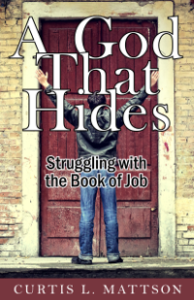 THE SUBJECTS COVERED in the book of Job—possibly the oldest book in the Bible—range from the intimate to the expansive, from human emotion to celestial cosmology, from the psychological effects of physical pain to the question of delayed justice and retribution. As you read it, you will notice that themes tend to repeat throughout, with varying degrees of answer or conclusion.
THE SUBJECTS COVERED in the book of Job—possibly the oldest book in the Bible—range from the intimate to the expansive, from human emotion to celestial cosmology, from the psychological effects of physical pain to the question of delayed justice and retribution. As you read it, you will notice that themes tend to repeat throughout, with varying degrees of answer or conclusion.
We will hear the perennial question of what prayer actually accomplishes in God’s plan. That is, God asks—or rather commands—us to pray and says that “The effective prayer of a righteous man can accomplish much” (James 5:16 NAS). And yet God says elsewhere that his will is immutable. “God is … not a human being, that he should change his mind.” (Numbers 23:19). That question is larger than the scope of this book—yet it is a recurring theme—and is more answered by the apparent motivation of the characters than by direct instruction from God.
Faith, friends, and family
Along with the huge questions that Job and his friends ask (or avoid asking), there is the troubling object lesson of how humans should interact, addressing the power of words and insinuations. There are family issues illustrated, from a father’s care for his children to a wife’s fear and faltering in the face of a husband’s loss.
There is the issue of the scope and effect of man’s individual sinfulness and the imminence of judgment—the proverbial “justice delayed.” Also, the question of why God allows evil if he is both strong and loving, as the psalmist proclaims (Ps 62:11,12). Job’s experience (and ours) usually gravitates to one alternative or the other but, in our limited perspective, rarely sees both. Our simple, fallen conclusion is too often that he is either too weak to stop evil or not caring enough to spare his world from it.
God’s glory and our comfort
Ultimately, God’s glory is greater than our comfort. One key verse, “Though he slay me, yet will I hope in him” (13:15), says it all. Yet, is God above his own law? That is, can we throw his law back at him, challenging him to obey our concepts of his authority and justice?
Another great question posed—or at least clearly implied—is “how much can we really know about God and his will?” Theologians such as Karl Barth and others used the term “the wholly otherness of God.” This account of Job experience implies that we must realize and submit to the fact that God is infinitely greater than even our most awe-filled and generous image of him.
It goes without saying that each theme or question is worthy of a book in itself. But I am simply offering a taste—an appetizer if you will—that will hopefully whet your appetite for further search, struggle, and contemplation.
A cosmic contest
One man in a faraway country, uncounted years ago, became part of a cosmic contest in the courts of heaven and in so doing became a key to our understanding so many things about God, the world, friendship and communication, wealth and generosity.
In A God That Hides, I will wrestle right along with you, offering no easy answers but compelling both of us, as the biblical phrase goes, to “wait upon the Lord.”
–Curtis L. Mattson, MDiv
Covenant Theological Seminary, ’82